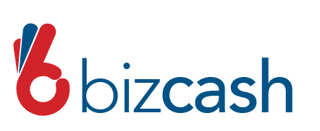
Sometimes an unsual paradox arises in business. You may need to raise cash precisely because your business is productive.
For example, you’ve just delivered a major order of your product, when another big order comes in. You accept it, of course, but you require capital to fulfill the new order. The problem is, payment from your first client has to come through before you can do anything. You need the cash now. You’ve invoiced your client. But for the next 30, 60 or even 90 days, you’ll have nothing to show for it. What do you do?
Factoring and Invoice Financing are alternative finance solutions that can release the funds tied up in your unpaid invoices.
The way it works is that a specialist provider will offer advances against outstanding debtor balances. In other words, the debts owed to your business – i.e. outstanding invoices – are used as collateral for a cash loan. The value of this loan can be as much as 85%-90% of the invoice (in fact, Bizcash’s unique, industry-leading pricing model offers up to 95.5% of the invoice with no hidden fees or repayment penalties as well as not using the invoice as a means of collateral).
The beauty of both invoice financing and factoring is that it prevents you from having to wait 30, 60 or even 90 days to get paid – vital if you need working capital as a matter of urgency. Essentially, it solves the problems associated with slow payment, ensuring you maintain a steady cash flow.
Read our blog on the importance of understanding cash flow: Better understand cash flow to ensure your business's financial health
Sectors that most often make use of invoice financing and factoring include construction; wholesale; manufacturing and recruitment, as well as certain professional services with long sales cycles. They also prove particularly beneficial for fast-growing business and start-ups.
But what exactly is the difference between invoice financing and factoring? And which should you choose?
Factoring vs Invoice Financing
Factoring is similar to invoice financing in the sense that factoring enables a business to raise funds based on invoices owing to the business. However, there’s a fundamental difference. Invoice financing is simply getting a cash advance based on the value of invoices owed. You remain responsible for collecting payment of the invoice from your client (which will obviously help you pay back the advance). Factoring, on the other hand, involves selling your accounts receivable to a factoring company. Invoice financing is a loan, with invoices used as collateral; factoring is the sale of invoices owed.
Confidentiality
There’s an obvious implication here: with invoice financing, you’ll continue to deal with your customers, and they won’t be aware you’re using a finance facility. Factoring, however, is tantamount to debt collection by an outside provider – it effectively makes the company’s financing decisions public. Clients may also not be comfortable dealing with an unfamiliar third party. For these reasons, established businesses with the capacity to collect on invoices owed tend to prefer invoice financing to factoring.
Flexibility
With invoice financing, you can decide on an ad hoc, on-demand basis which of your invoices you want financed. Invoice factoring, on the other hand, is most often an ongoing source of funding – essentially, a line of credit linked to your account receivables; a catch-all mechanism not allowing you the opportunity to select specific invoices or clients.
Cost
Because factoring companies take on more risk than their invoice financing counterparts (where the borrower remains responsible for collecting on the debt), they tend to charge higher fees. But the equation here is not so simple. Indeed, the collection service that comes with factoring is a major benefit – particularly to smaller companies without dedicated finance personnel – freeing up time and resources to focus on core business activities.
In summary
Though smaller business sometimes opt for factoring to take advantage of credit management services, invoice financing offers the benefits of confidentiality, flexibility, and comparatively low charges. This makes invoice financing an effective solution for established businesses looking to improve cash flow.
To find out what you need to qualify for Bizcash invoice financing, read our blog: Going Alternative: Qualifying criteria for alternative business financing





 Proudly financed by Reichmans Capital -
Proudly financed by Reichmans Capital -